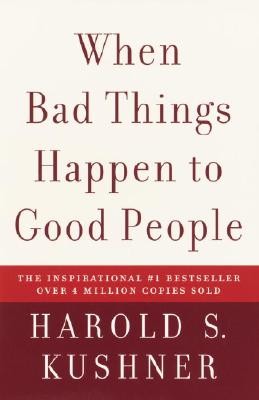I have a friend who is going through some major S**T right now. The kind of S**T that would make you gasp and shudder. Trust me when I say that you don’t want to know the details.
Why? Why? Why? …is a a common and natural response to nonsensical tragedy that is an inherent part of life. After my FBC diagnosis, an innumerable number of people posed the “Why?” question to me: “How is it,” they wondered, “that someone who is as healthy and fit and happy as you are get diagnosed with cancer?”
I never questioned my diagnosis (or even my abhorrent reaction to the treatments). I felt as though, for reasons unbeknownst to me, that FBC was the experience that I was supposed to have. Further, I channeled any (unanswerable) questioning into action, which turned out to be a great source of Silver Linings.
It’s not to say that I haven’t ever asked the big “Why?” question because I certainly have. Many times. For example when a dear friend died two months ago (after having been diagnosed with Stage IV cancer just last March), I certainly asked WHY? (Actually, I asked WTF?). I also had many “Why” questions when I cared for dying children. After all, the death of a child is the most unnatural circumstance in this world, for which there are absolutely no rational explanations.
A book that seems to be omnipresent in my hospice work is When Bad Things Happen to Good People by Rabbi Harold Kushner. As a small-town rabbi he counseled other people through pain and grief. But it was not until he learned that his three-year-old son, Aaron, would die in his early teens of a rare disease that he confronted one of life’s most difficult questions: Where do we find the resources to cope when tragedy strikes?

In order to come up with an explanation of tragedy and suffering which satisfies both honest observation of reality and faith in a good God, Rabbi Kushner begins by assessing the explanations for suffering which he grew up with and encountered when trying to deal with Aaron’s illness and death, all of which failed to satisfy.
Years later, Rabbi Kushner wrote this straightforward, elegant contemplation of the doubts and fears that arise when tragedy strikes. Kushner shares his wisdom as a rabbi, a parent, a reader, and a human being.
Rabbi Kushner has been quoted as saying, “I [wrote this book] out of my own need to put into words some of the most important things I have come to believe and know. And I would write it to help other people who might one day find themselves in a similar predicament. I am fundamentally a religious man who has been hurt by life, and I wanted to write a book that could be given to the person who has been hurt by life, and who knows in his heart that if there is justice in the world, he deserved better.”
Since its original publication in 1981, this often imitated but never superseded book is a classic that offers clear thinking and consolation in times of sorrow. When Bad Things Happen to Good People has has brought solace and hope to millions of readers.
From my perspective as a nurse and social worker…and now FBC patient, I would encourage people to keep asking the question, “Why do bad things happen to good people?”
However, (here comes the slightly radical part), after asking the question, I would encourage you to cease looking for answers. Instead, I recommend that you start formulating a response. The Silver Lining is that inexplicable tragedy creates an opportunity to take righteous anger and sadness and turn it into a force for doing good.
No it’s not easy. I would never suggest otherwise. What I do know for sure is that dumbfounding circumstances and even outrage can be redirected and channeled into action. When you see innocent people suffering, help them. Combat the pain in the world with goodness. Alleviate suffering wherever you can. At least that’s how I’m rolling…


Thank-you for this post! I love it!
Thanks so much, Denise! Glad you love it!
My son Joel died April 12,2006. I thought I would never recover. Over the months and years following his death I have learned many things about myself. One of the best is never to give up. Life does not stop, Love does not go away, and you find out what you are made of after the anger subsides. I want to thank all that have had a hand in helping me, specially those who did not even know they helped. Thank you.
Dear Joan,
I am so sorry to hear this news. Having done pediatric hospice, and witnessed the deaths of a great number of children, I know that there is nothing in this world that is worse than the death of a child. How strong and resilient and wise you are, Joan. Thank you for sharing your experience and your inspiration. They mean the world to me and, I know, to other readers.
Thank you, again.
Hollye
God Bless You!! Thank you for your efforts!!
Thank you so much, Ruth Ann!